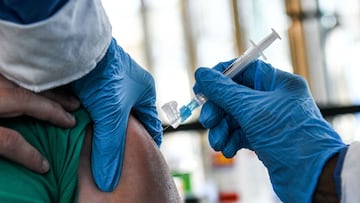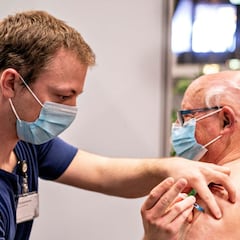Taking care after the vaccine: What medications or pain relievers are safe to take?
Getting a reaction to a vaccine is just your body showing signs that it’s learning how to defend itself. Here’s what can you do to alleviate any symptoms.

A there are different types of vaccines that go about how they teach your body to fight off a disease in their own way. The general idea though is to get your body to recognize the target disease so should you come into contact with a pathogen, your body’s immune system will attack it before it can do any harm.
Getting vaccinated for some is just a quick prick in the arm, it’s something they would rather not do and have to muster the strength. It doesn't help when the person giving you the jab says you might get a reaction. Some don’t notice a thing but reactions are common after getting a vaccine and the covid-19 vaccine is no different. So what are the reactions to the covid-19 vaccine and what can you do to remedy them.
- Can you drink alcohol after taking a covid-19 vaccine?
- How many J&J vaccines have been administered in the US?
- Differences between the Pfizer, Moderna and J&J/Janssen covid-19 vaccines
- What to do if you get covid-19 between vaccine doses?
What symptoms might I experience after getting a Covid-19 vaccine?
According to the Center for Disease Control and Prevention (CDC), individuals who have received Covid-19 vaccines have reported various symptoms, including tiredness, headache, muscle pain, chills, fever, nausea, and more. These symptoms are normal and are evidence that your body is creating an immune response to recognize the virus and protect you against it in the case you are exposed.
What can I do to alleviate or prevent some of these symptoms?
Suppose these sorts of symptoms arise after receiving the vaccine. In that case, the CDC recommends speaking with your doctor to see if it is appropriate to take over-the-counter pain medications such as ibuprofen (Advil, Motrin, etc.) or acetaminophen (Tylenol) to alleviate some of these symptoms.
#COVID19 cases have been on the rise since March 20. The current 7-day moving average of daily new cases is 69,953, a 10% increase from the previous week.
— CDC (@CDCgov) April 14, 2021
Stop the spread. Practice healthy habits. Wear a mask. Stay 6 feet apart. Avoid crowds. More: https://t.co/gp6X4zTnBT. pic.twitter.com/7q4nzFhK1c
These sorts of medications are often prescribed to patients who have the flu or other infections that cause flu-like symptoms. Since some of the available Covid-19 vaccine work by mimicking an immune response, these medications may help alleviate the symptoms that can accompany that sort of response.
Also, the CDC recommends that in the event a fever does arise, your best bet is to “drink plenty of fluids” and “dress lightly.”
Related stories
For those who experience pain or discomfort at the injection site, the agency recommends that you “apply a clean, cool, wet washcloth over the area.” In addition, the CDC suggests exercising the arm.
The CDC also states that some reactions “may affect your ability to do daily activities, but they should go away in a few days.” If symptoms persist, it is best to check in with your primary health care provider.

